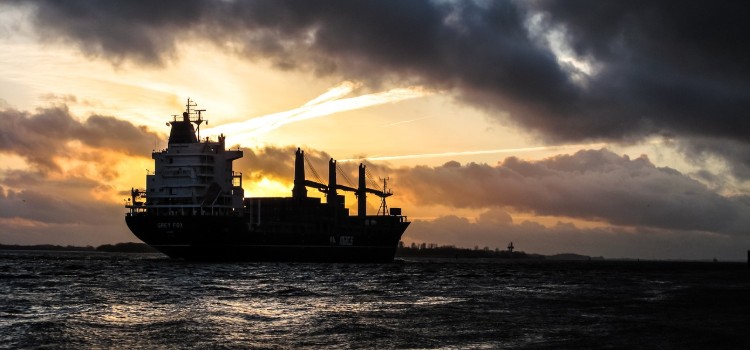
A specialized agency of the United Nations, the International Maritime Organization (IMO)’s mission is to “promote safe, secure, environmentally sound shipping through cooperation.”
In support of the environmental leg of their mission, the IMO has a regulation taking effect January 1, 2020, to limit sulfur emissions from ships. These emissions are harmful to the health of humans and animals and can cause acid rain which affects crops, forests, and marine life. Therefore, the IMO has made changes to the sulfur content limits of bunker fuel.
At the Marine Environment Protection Committee (MEPC) meeting in London in 2016, the IMO decided to lower the current limit for marine fuel sulfur content from its current 3.5% level down to .5% beginning January 1, 2020.
Oil companies are making adjustments in preparation for the rule change. Shell is currently testing a new .50% IMO 2020 compliant marine fuel by performing trials in cooperation with ship owners. They also offer liquefied natural gas (LNG) marine fuel as a cost-competitive and clean alternative to high sulfur fuel oil (HSFO). Adding scrubbers to ships removes much of the sulfur from the exhaust to help meet IMO 2020 regulations. Ships with onboard scrubbers, or who will add scrubbers before the IMO deadline, will still have access to HSFO at key ports.
IMO 2020's Effect on Air Freight Costs
As oil companies focus on making IMO 2020 compliant fuel, airlines raise concerns about possible fuel shortages. Refineries need to produce cleaner fuel for steamship liners, so they won’t be able to give airline fuel the same time and attention. Air freight costs may rise for a period of time during the adjustment.
Shipping Rates May Rise
Although Singapore and China question the environmental benefits of onboard scrubbers and have banned their use in coastal shipping ECAs (Emission Control Areas) and inland port waters, many shipowners will choose to take on the cost of installing them so they can continue to use higher-sulfur fuel.
Liquefied natural gas (LNG) is a viable and compliant non-petroleum fuel alternative, but very few ships choose it because of limited infrastructure. Many ship owners will decide to use a very-low sulfur fuel (VLSF), but adaptations required by the petroleum industry are costly and could drive a rise in prices.
Steamship liners may give enough notice to allow for adjustments to freight volume to beat the deadline and take advantage of lower costs, but there’s no guarantee.
If shippers have enough notice to ship more freight ahead of the January 1, 2020, deadline, they could save some money. However, experts in the industry expect freight rates and container transportation costs to increase by the end of 2019’s third quarter. Shippers should expect a Bunker Adjustment Factor for full and part load containers on long-term agreements.
Q4 2019 Will Be Extra Chaotic
The holiday peak season is always challenging for shippers. This year, IMO 2020 brings another layer of uncertainty to the situation. While there’s not a lot that importers can do to prepare for this coming fourth quarter, it’s smart to anticipate a more challenging season than usual.
In the past when there’s been a worker shortage or extensive maintenance and repairs to ships, the process of getting goods from point A to point B takes a bit longer. Carriers are traditionally quick to communicate to shippers if there’s a shortage of boats on the water.
When the new rules go into effect on January 1, 2020, more than 90% of the world’s ships will be compliant. In addition to making billions of dollars of investments in the ships so they can burn compliant fuel, shipping lines need to prepare to pay higher fuel bills.
They’ll need to look closely at their regular service routes and work with bunker suppliers to negotiate the price and availability of fuel. They’ll also need to prepare for the possibility that during the transition, they may be non-compliant with new regulations at times.
Last month, the International Chamber of Shipping (ICS) issued a warning to ship owners with a Fuel Oil Non-Availability Report (FONAR). Ship owners must remain in compliance with IMO 2020, even if it means paying a higher price for alternative fuels.
Higher costs will not be accepted as a valid reason for claiming that safe and compliant fuels were not available to the ship owner. If a FONAR is issued, remaining non-compliant fuel must be debunkered at the next port of call. Port State Control (PSC) will not allow it to be used on future trips. PSC will also watch closely to make sure that a ship hasn’t submitted excessive FONARs in the past 12 months. They’ll compare FONARs for other ships on similar voyages, as well.
The transition to IMO 2020 regulations will cost the shipping industry roughly $24 billion. Steamship lines negotiate contracts with big box stores for the fourth quarter during April and May. Importers should pay attention to what’s happening in the marketplace as we close in on the deadline for IMO 2020 if they want to stay ahead of potential pitfalls and other eventualities.



.jpg?width=750&name=boeing-747-884426_1280%20(1).jpg)
